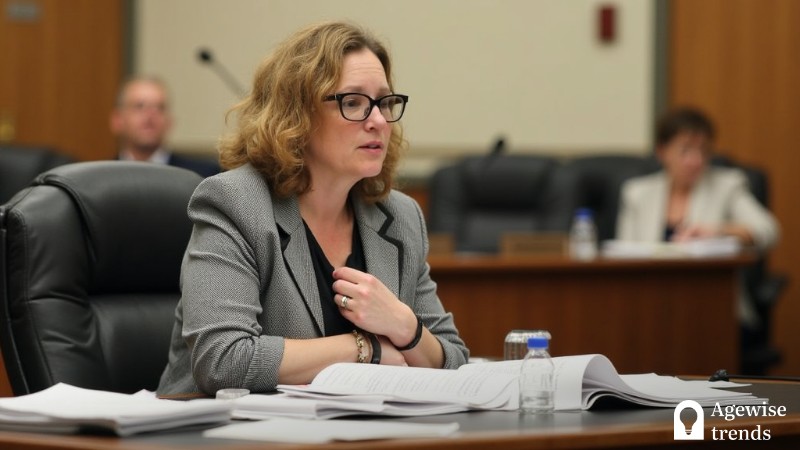Jessica Nelson knows the toll of round-the-clock caregiving. As an adult foster home provider in rural Towner, she dedicates nearly every waking moment to caring for residents with dementia. But the relentless schedule comes at a cost.
“I love my job. I love helping people. But the way the system is set up, I have to choose between taking care of my residents and spending time with my own children,” Nelson said. “I’m burning out.”
Nelson, working alongside District 6 legislators, is championing House Bill 1460—a proposal aimed at giving adult foster care providers more time off. Under current North Dakota law, these caregivers are only allowed 96 days off per year, with anything over eight hours counting as a full day off. Given the demands of caring for individuals with dementia, Nelson argues that this structure leaves providers exhausted and struggling to balance work and family life.
On Tuesday, Nelson brought her case before the House Human Services Committee, urging lawmakers to recognize the need for change. The bill proposes shifting the definition of a “calendar day” from eight hours to 12 hours and increasing the total allowable time off to 136 days per year. The adjustment, Nelson believes, would make a significant difference in her ability to continue providing quality care without sacrificing her personal well-being.
Key Takeaways
Legislation aims to ease the burden on adult foster home caregivers by proposing changes in their time off allowances.
- House Bill 1460 seeks to redefine a ‘calendar day’ from eight hours to twelve and increase allowable time off for caregivers.
- Current restrictions make it difficult for caregivers like Jessica Nelson to balance work with personal life, leading to burnout.
- The bill has bipartisan support and includes an interim study on adult foster home licensing to address regulatory challenges.
The Challenge of Juggling Caregiving and Family Life
Caring for residents with dementia isn’t just a job—it’s a fulltime commitment. Nelson, licensed for four residents, currently cares for two full-time and one part-time resident. She receives no public funding and must personally find and pay for substitute caregivers. Yet, the existing restrictions make it nearly impossible to step away when needed.
“I have to weigh whether attending my daughter’s basketball game is worth giving up an entire week of summer vacation,” she said. “It’s an impossible choice.”
The stress of constant caregiving is taking a toll not only on Nelson but also on the future of adult foster homes in North Dakota. According to the North Dakota Department of Health and Human Services, the state has just 11 licensed adult foster care homes—a stark contrast to the growing need for long-term care solutions. Without changes to the current system, Nelson fears that fewer caregivers will be willing to take on this essential role.
A Call for Legislative Change
The bill has gained bipartisan support, with Rep. Dick Anderson (R-Willow City) and Rep. Paul Thomas (R-Velva) advocating for its passage. Anderson emphasized the importance of fostering more facilities like Nelson’s, especially in rural areas where long-term care options are scarce.
Thomas highlighted the financial benefits, pointing out that adult foster care is often more cost-effective than traditional nursing homes. “This is one small change that could make a huge difference,” he said. “Not just for caregivers, but for families and the state as a whole.”
Beyond providing immediate relief, HB 1460 also includes an interim study on adult foster home licensing. Lawmakers hope to examine existing barriers to care, regulatory challenges, and potential funding solutions. Nelson believes this study is crucial, as many of North Dakota’s current regulations feel disconnected from the realities of caregiving.
“There’s a lot in the Century Code that doesn’t seem to consider the caregiver’s perspective,” she explained. “Some requirements—like allowing unannounced family visits at any time—just aren’t practical when caring for residents who need structure and routine.”
As the committee reviews the bill, Nelson urges lawmakers to look at how other states manage adult foster care. “There are models out there that work beautifully,” she said. “If we can make even small improvements, we can create a system that truly supports both caregivers and those they serve.”
With HB 1460 now under consideration, Nelson remains hopeful that the Legislature will recognize the critical role adult foster care providers play—and the urgent need to give them the support they deserve.


